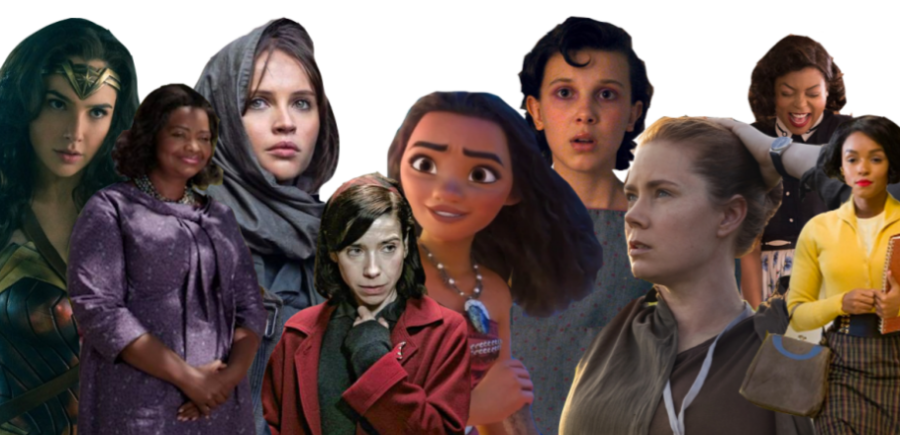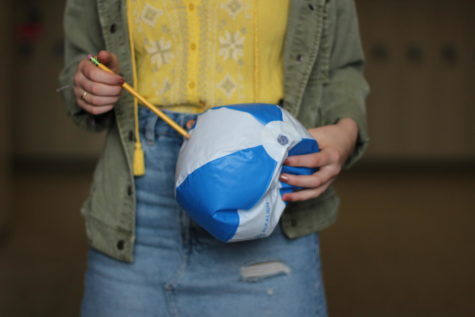Sexual Harassment and the Rise of the Heroine
February 22, 2018
One only has to examine The Birth of a Nation‘s role in encouraging racial sentiment and inspiring the formation of the Klu Klux Klan to understand how movies can be a force for societal change. While The Birth of a Nation‘s effects were undoubtedly harmful, modern-day films like Moana, Rogue One: A Star Wars Story, Arrival, and Hidden Figures are currently creating positive developments in U.S. culture because they encourage feminism and were the inspiration for the creation of the #metoo movement.
Although Hollywood is currently infamous for the source of this scandal, ironically the Californian film industry may actually end up becoming both the cause and the solution to the ongoing problem of sexual harassment.
While many actresses have recently endured mortifying and abusive conduct from their male colleagues, the female characters they portray on screen are some of the most powerful, versatile, and inspiring representatives of their sex in cinematic and literary history. Female stereotypes are finally dying. Girls are no longer being designated as only the love interest, the concerned mother, the caring wife. They’re no longer in the background of a story. They’re situated at the front and center of more and more TV shows and are the face of more and more franchises every year.
In 2016, women made up 29% of protagonists in the top 100 films at the U.S. box office and 37% of major characters overall. These included Moana, Jyn Erso, Louise Banks, and Mary Jackson, Katherine Johnson, and Dorothy Vaughan. The Disney princess who rescues her people rather than being rescued by a love interest. The lone rebel who sacrifices her life to save the Rebellion. The linguist who is essential to decoding extraterrestrial speech. The real-life African American scientists and mathematicians who made possible humanity’s first step on the moon. All of these women are strong in their own unique way. They’re all fighting for a cause they believe in and striving to save the people they love and they’re all integral to the success of their respective missions. Women around the nation and even the world look at these women and aspire to achieve similar triumphs in their own lives.
What defines these women is not just their ability to stand up for others but also their ability to stand up for themselves. Moana chooses to disregard her family’s wishes and pursue her own mission and doesn’t hesitate to put Maui in his place. When Jyn speaks her mind and the rebel council questions her due to her youth and gender, she still chooses to do what she believes to be right. Louise defies the military protocol enforced by her male peers in order to more effectively communicate with the aliens using empathy and compassion. Mark, Katherine, and Dorothy have to prove that they’re capable of intense mathematical problem solving and worth being listened to as women in the men-dominated environment of NASA.
These women are impressive not mainly for their physical strength but for their strength of will and resolve. They have a firm sense of what is right even if the male world around them is blind to morals. These women say and do the things on screen that real women long to say and do themselves. The representation of female strength in art and the media matters.
By creating characters that women of all ages can love and identify with, Hollywood inadvertently exposed their own hidden evil. The paradox of abused women representing empowered women on screen cannot continue. Eventually they will assume the courage and moral sensibility of their fictional counterparts and fight back against sexual oppression and injustice so that no woman is forced to say #metoo again.




